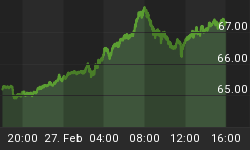As the chart below indicates, it is different this time. With rare exceptions like the Great Depression and in the years right after WWII, households have run surpluses. That is, households usually spend less than they earn after taxes. But in recent years, thanks largely to cheap mortgage credit, households have started to run deficits. In dollar terms, households ran a record deficit of $470.6 billion in 2005. Relative to their after tax income, households ran a record deficit of 5.2% in 2005. Households in 2005 ran a bigger deficit than did the federal government! Yep, it sure is different this time. I can't wait to see how this imbalance is resolved.
Chart 1















